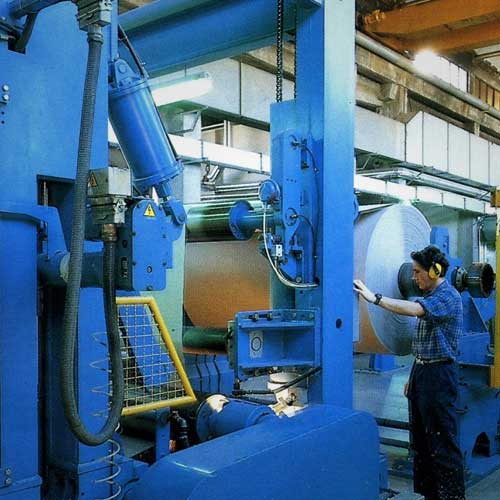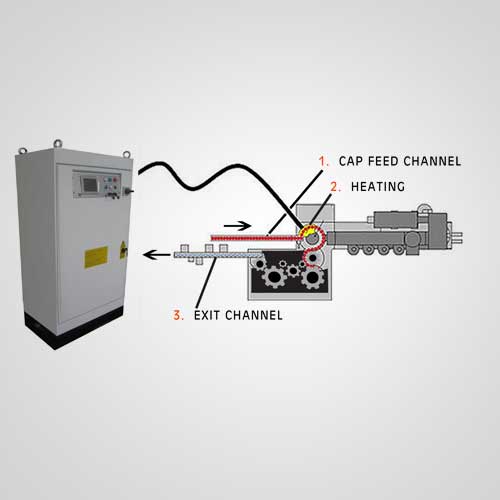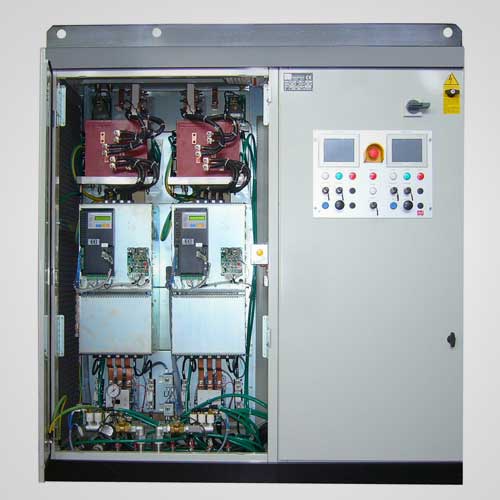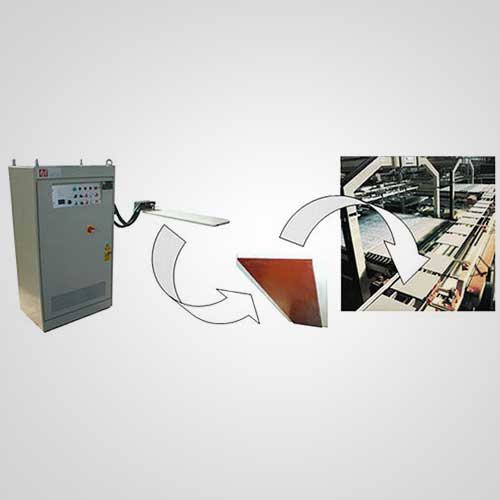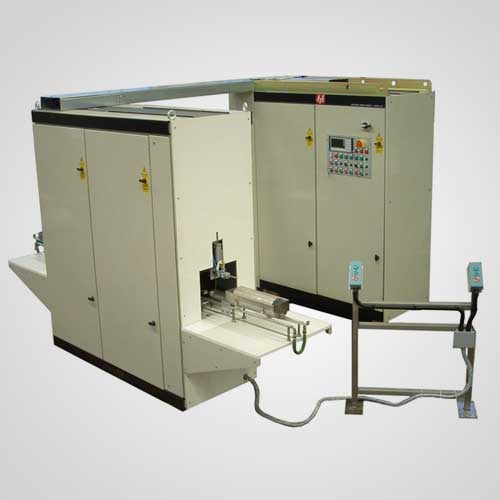Induction systems for the surface heating of cylinders
on paper production lines
The heating of the cylinders by means of an induction system is based on the Joule effect, generated by the currents induced in the mantle of the cylinder and due to the variable magnetic field produced by an inductor that can be inside or outside the cylinder.
In the technologically advanced field, industrial cylinders must have an unvarying and constant temperature, which is an essential feature for the following processes:
- drying
- rolling
- stabilisation
- calendering
- application of adhesive film to a material
It is possible to meet these requirements only with an induction system. The reasons for which these results are reached are:
- heat is generated directly into the cylinder
- the cylinder surface heats immediately
- the surface temperature is controlled with precision
- heat is distributed evenly over all the external surface, regardless of the cylinder position and the environmental working conditions
The economic advantages of an induction system compared to one that uses oil or steam as a thermal vector fluid are numerous. A few that can be mentioned are:
- low installation cost
- primary energy saving
- temperature maintenance
- easy to use
- simple manufacturing
